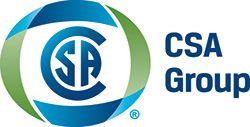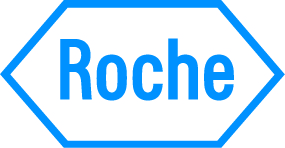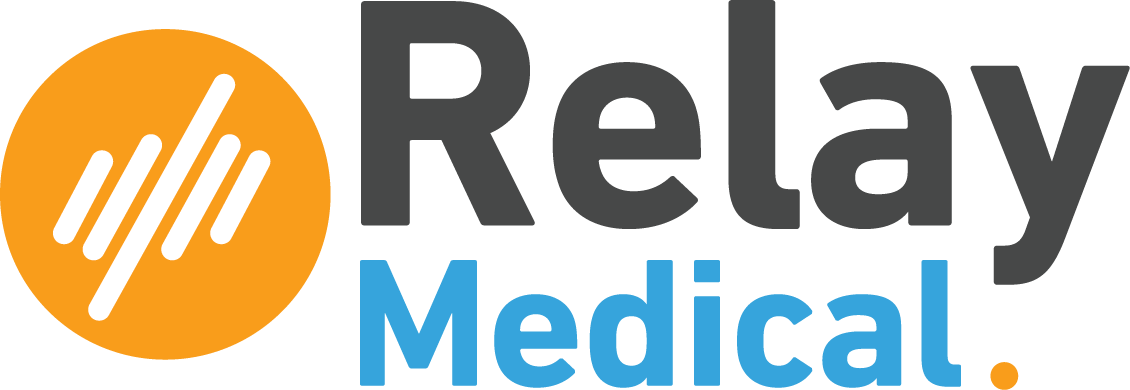Registration
Registration for Techna 2018 is now closed.
Location
MaRS Auditorium
101 College Street . Toronto . Ontario
M5G 1L7
Schedule & Speaker Bios
Below is the event schedule for Techna 2018: Enabling AI in Healthcare. Here you can view the agenda and speaker bios by clicking the event times below. Video recordings of individual speeches will be available on this page after the event within each segment. The Techna 2018 Symposium will feature a live tweeting system for participants to add comments in parallel to the discussions and presentations.
Videos of the Day
To view the video playlist of the full day at Techna Symposium please click the button below.
Agenda
8:00-8:40 – Breakfast and Registration
8:40-8:45 – Morning Greeting

Executive Vice President, Technology & Innovation, UHN; Director, Techna Institute, UHN
Dr. David Jaffray graduated from the University of Alberta with a B.Sc. in Physics (Hons.) in 1988 and completed his Ph.D. in the Department of Medical Biophysics at the University of Western Ontario in 1994. Following graduation, he took a position as Staff Physicist in the Department of Radiation Oncology at William Beaumont Hospital in Michigan where he instigated a direction of research that garnered funding from the NIH and from congressionally-directed funding programs. Dr. Jaffray became a Board Certified Medical Physicist (ABMP – Radiation Oncology) in 1999.
In 2002, Dr. Jaffray joined the Princess Margaret Hospital in Toronto as Head of Radiation Physics and a Senior Scientist within the Ontario Cancer Institute. David holds the Fidani Chair in Radiation Physics, is the Director of the Techna Institute for Health Technology Development at the University Health Network and recently became the Executive Vice President of Technology and Innovation at the University Health Network. He is a Professor in the Departments of Radiation Oncology, Medical Biophysics, and Institute for Biomaterials and Biomedical Engineering at the University of Toronto. His primary area of research has been in the development and application of image-guided therapy. He has over 5 patents issued and several licensed, including, kilovoltage cone-beam computed tomography for image-guided radiation therapy. Dr. Jaffray has >200 peer-reviewed publications in the field, >100 invited lectures, and holds numerous peer-review and industry sponsored research grants. He sits on numerous scientific and research boards and has contributed to the NIH and CIHR grant review process for several years. He is an active member of the AAPM and teaching role in workshops and annual meeting of the American Society of Therapeutic Radiation Oncology (ASTRO). He has an active interest in commercialization and led the development of a variety of commercial products including software and hardware for QA and the development of small animal irradiator systems for basic research. He has successfully supervised over 20 graduate students and fellows.
Dr. Jaffray has won each of the major prizes in the field of the medical physics, including, the Sylvia Sorkin-Greenfield Award, The Farrington Daniels Award, and the Sylvia Fedoruk Award. In 2004, Dr. Jaffray was identified as one of Canada’s Top 40 Under 40 and was recognized by The University of Western Ontario with their Young Alumni Award in 2004. His current research interests focus on the development of imaging technologies and methods with a focus on image-guided interventions, including radiation therapy, drug delivery, and surgery.
8:45-9:00 – Opening Remarks
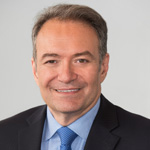
President & CEO, UHN
Dr. Kevin Smith is President & CEO of University Health Network (UHN), Canada’s largest academic health sciences centre. Dr. Smith has spent his career at the interface of the University and Research Hospital and is passionately committed to the mission of education, research and exemplary clinical care. Dr. Smith is a pioneer in advancing integrated care models spanning the continuum of health and social services.
Dr. Smith is a Professor, Institute for Medical Sciences, Institute of Health Policy, Management and Evaluation (IHPME), Rotman School of Management and at the De Groote School of Medicine, Department of Medicine, McMaster University.
Educated in Canada, the U.S. and Great Britain, Dr. Smith began his career in medical education, followed by leadership roles in university administration, academic hospitals and health systems. He is professionally certified in Corporate Governance by the Institute of Corporate Directors and the Harvard Program in Effective Governance, and completed the Wharton School CEO Program for Health Care Leadership.
Dr. Smith currently serves as Chair, Council of Academic Hospitals of Ontario and was privileged to serve in many past roles including Chair, The Canada Foundation for Innovation, the Ontario Hospital Association and as a frequent advisor to governments and the private sector.
9:00-10:00 – Keynote: Friends Don’t Let Friends Deploy Black-Box Models: The Importance of Intelligibility in Machine Learning for Healthcare
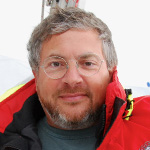
Senior Researcher, Microsoft Research
Rich Caruana is a Principal Researcher at Microsoft. Before joining Microsoft, Rich was on the faculty in Computer Science at Cornell, at UCLA’s Medical School, and at CMU’s Center for Learning and Discovery. Rich’s Ph.D. is from CMU, where he worked with Tom Mitchell and Herb Simon. His thesis on Multi-Task Learning helped create interest in a new subfield of machine learning called Transfer Learning. Rich received an NSF CAREER Award in 2004 (for Meta Clustering), best paper awards in 2005 (with Alex Niculescu-Mizil), 2007 (with Daria Sorokina), and 2014 (with Todd Kulesza, Saleema Amershi, Danyel Fisher, and Denis Charles), co-chaired KDD in 2007 (with Xindong Wu). His current research focus is on learning for medical decision making, intelligible modeling, deep learning, and computational ecology.
10:00-11:15 – Session 1: Social Licence on the Use of Data in AI

VP, Health Strategy & Partnerships, Vector Institute
As Vice President, Health Strategy and Partnerships, Alison Paprica is the Vector Institute’s corporate lead for health strategy, overseeing health research collaborations, health data partnerships and health AI application projects. Alison joined Vector with more than 20 years of management experience in the government and private and not-for-profit sectors. Immediately before joining Vector, she was Director, Strategic Partnerships at the Institute for Clinical Evaluative Sciences (ICES). In that role, she laid the groundwork for ICES analytic services for the private sector, initiated ICES’ first public engagement work, and developed and expanded ICES’ partnerships with important provincial, national and international health data holding organizations.
From 2010 to 2013, Alison was the Director of the Planning, Research & Analysis Branch at the Ontario Ministry of Health & Long-Term Care, responsible for up to $60 million of annual health research investments. She also led extensive knowledge translation activities to ensure that research findings were taken up and used in policy development and planning. Within the Ontario Public Service, Alison also held the positions of founding Manager of the Planning Unit at the Ministry of Health & Long-Term Care and Manager of Performance Measurement & Results at the Ministry of Research & Innovation.
Before she joined the Ontario Public Service, Alison worked in international pharmaceutical R&D for seven years at Eli Lilly, Astra Pharma and Genpharm Inc. She holds an Honours Combined BSc in Biochemistry and Chemistry (McMaster), a PhD in organic chemistry (Western University) and is Assistant Professor (status) at the Institute for Health Policy, Management & Evaluation at the University of Toronto. She is among the first 5% of people to obtain Project Management Professional (PMP) certification internationally, and led the development and delivery of two University of Toronto courses focused on project management for research.
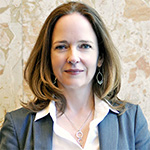
Director, Joint Centre for Bioethics, University of Toronto
Dr. Jennifer Gibson is Sun Life Financial Chair in Bioethics and Director of the University of Toronto Joint Centre for Bioethics, Associate Professor in the Dalla Lana School of Public Health, and Director of the World Health Organization Collaborating Centre for Bioethics at the University of Toronto. Jennifer has a PhD in Philosophy. Her program of research employs qualitative social science methods and normative analysis to study ethical issues in health institutions and systems. She is particularly interested in the role and interaction of values in decision-making at different levels in the health system. Currently, she is leading a new program of research on ‘Ethics and AI for Good Health’. Jennifer has served on government and policy advisory committees related to medical assistance in dying, public health emergency preparedness, public health surveillance, critical care triage, drug funding and supply, and healthcare resource allocation. She also works closely with the World Health Organization on global health ethics issues.
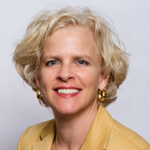
Director, Ted Rogers Centre for Heart Research, UHN
Heather Ross, MD, MHSc, FRCP (C), FACC is a cardiologist at the Peter Munk Cardiac Centre, Professor of Medicine at the University of Toronto, and Director of the Cardiac Transplant Program at Toronto General Hospital. She is the Director of the Ted Rogers Centre of Excellence in Heart Function, site lead for the Ted Rogers Centre for Heart Research, and currently holds the Loretta A. Rogers Chair in Heart Function. She received her medical degree from the University of British Columbia, Canada, her cardiology training at Dalhousie University, and a postdoctoral fellowship in Cardiac Transplantation at Stanford University, California. She earned her Master’s Degree in Bioethics from the University of Toronto.
Dr. Ross served as President of the Canadian Society of Transplantation in 2005 and on the executive of the International Society for Heart & Lung Transplantation (ISHLT) from 2002 through 2005 and Secretary Treasurer 2007-2010. She is an Associate Editor for the Journal of Heart and Lung Transplantation. She served 5 years on the Canadian Cardiovascular Society Council, 3 years on the Canadian Cardiovascular Society Executive and on the Board of the Canadian Cardiovascular Society Academy. She served 4 years on the executive of the Heart Failure Society of America. She is the past Ted Rogers and Family Chair in Heart Function 2010-2017. Dr. Ross is currently the Past President of the Canadian Cardiovascular Society. She has published over 250 articles and won numerous teaching awards. In 2015, she was named by Canadian Geographic as one of the top 100 modern day explorers.

Executive Director, Information Management, Data & Analytics, Ministry of Health & Long-Term Care
Michael Hillmer is the Executive Director of Information Management, Data, and Analytics at Ministry of Health and Long-Term Care. He is responsible for ensuring the data and analytic needs of the health system are met and oversees the province’s health privacy legislation. In this role, Michael has overseen the creation of an advanced analytics branch focusing on simulation, machine learning, and artificial intelligence applications.
Michael’s academic background includes graduate degrees from the University of Toronto and he is currently an adjunct Assistant Professor at the University of Toronto.
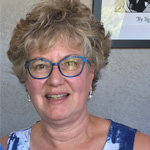
Patient Partner, UHN
Retired senior marketing professional with a strong career within the IBM Canada and the IBM Global Marketing organization. Upon retirement, she established a marketing consulting business and following that is now an active member of the UHN Patient Partner Program. Her experience during a 10 year journey as a patient caregiver within the UHN realm of healthcare facilities brings many experiences to this program. She continues to be a results focussed team member with strong expertise in reaching the right target audiences, coaching teams and individuals to achieve results and building relationships and change management initiatives.

CEO & Co-Founder, MedChart
James is a leader, life-long-learner, and is passionate about entrepreneurship. His journey started when he co-founded a family business with his father in 2003 and earned his Red Seal license in carpentry. He owned and operated the company until 2009 when he decided to pursue Engineering Science Majoring in Engineering Physics at the University of Toronto. During his studies, he performed research on MRI at Sunnybrook Research Institute, quantum computing at the Institute for Quantum Computing and Steinberg Lab, and nanoelectronics devices at the Centre for Advanced Nanotechnology with publications in Physical Review Letters and APS Physics. In 2013, James graduated with honours and a certificate in Engineering Business while also serving on the University of Toronto Governing Council and its sub-committees. In early 2016 he graduated a M.A.Sc. in Electrical and Computer Engineering and was awarded the NSERC PGS-D scholarship to pursue his Ph.D. at the U of T. He has since taken leave from his Ph.D. to pursue MedChart full-time.
James’ pursuit of entrepreneurship has led him to found and co-found three companies during his time at the University of Toronto. Covalent Construction (2009), Devra Sports (2010) and MedChart in 2015 with Derrick Chow. He was motivated to found MedChart after experiencing the pain of trying to get medical records to assist with coordinating care for a dying family member in 2013. As CEO, he has successfully led MedChart to win top prizes from the Entrepreneurship Hatchery and Start@UTIAS accelerators in 2015 to launch his start-up. James believes that there is a true demand for easy access to personal medical records and approaches each day with an entrepreneurial spirit seeking “problems” to be solved.
11:15-11:30 – Break
11:30-12:30 – Session 2: Experiences and Challenges of Implementing AI in Healthcare

EVP Education, UHN
Brian D. Hodges, MD, PhD, FRCPC is Professor in the Faculty of Medicine and at the Ontario Institute for Studies in Education at the University of Toronto; the Richard and Elizabeth Currie Chair in Health Professions Education Research at the Wilson Centre and Executive-Vice President Education and Chief Medical Officer at the University Health Network (Toronto General, Toronto Western, Princess Margaret, Toronto Rehab Hospitals and the Michener Institute). He is a practicing psychiatrist and teacher. His research focuses on assessment, competence, compassion and the future of the health profession. His work has been recognized with the Association of American Medical Colleges Flexner Award (2015) and the Karolinska Institutet Prize for Research in Medical Education (2016).
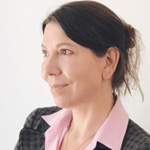
Founder and Managing Partner, Pool Global Partners
Sally Daub is a technology entrepreneur, investor and CEO. As Founder and Managing Partner of Pool Global Partners, a deep technology venture capital firm, Sally’s depth of experience and expertise is fostering the next generation of AI innovation.
An experienced operator with a track record of turning innovative ideas into market solutions, Sally advises numerous Silicon Valley and Canadian companies on commercialization strategy.
A frequent lecturer and guest speaker at universities and events around the world, Sally is also a Fellow at Creative Destruction Lab, a leading deep technology innovation pipeline, where she provides mentorship to entrepreneurs.
Sally has been recognized with numerous awards and appointments, including Women’s Executive Network’s Top 100 Most Powerful Women (2010, 2011, 2012, 2013) and inducted into WXN’s Hall of Fame (2014), The RBC Trailblazer (2010) and Profit Magazine’s Top Entrepreneurs (2010-2014).

Sector Specialist, Standards Council of Canada
Marta Janczarski is the Sector Specialist for AI/Big Data and Health Technologies at the Standards Council of Canada. She provides strategic advice and support for Canadian innovators in becoming involved in standardization as a way to engage markets competitively. Her past industry experience includes regulatory affairs work the pharmaceutical field, and industry stakeholder engagement in foreign affairs. She has a Bachelor of Science in Biopharmaceuticals, specializing in Genomics and a Master of Science in Science Communication and Public Engagement from the University of Edinburgh.
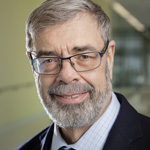
Dean, Faculty of Health Sciences, Queen’s University
Richard Reznick is married to Cheryl, and they have three children — Joanna, Josh and Gabe. Born in Montreal, he received his undergraduate university education and medical degree from McGill University, followed by a general surgical residency at the University of Toronto. He spent two years in fellowship training, first obtaining a Masters’ degree in medical education from Southern Illinois University, followed by a fellowship in colorectal surgery at the University of Texas in Houston, Texas.
Since his first faculty appointment at the University of Toronto in 1987, Dr. Reznick has been active in both colorectal surgery and research in medical education. He was instrumental in developing a performance-based examination, which is now used for medical licensure in Canada. He ran a research program on assessment of technical competence for surgeons and supervised a fellowship program in surgical education.
At the University of Toronto Faculty of Medicine, he was the inaugural Director of the Faculty’s Centre for Research in Education at University Health Network (The Wilson Centre) from 1997 to 2002. In 1999 he was appointed Vice President of Education at University Health Network. He served eight years as the R. S. McLaughlin Professor and Chairman of the Department of Surgery at the University of Toronto from 2002-2010.
In July 2010, Dr. Reznick assumed the position of Dean, Faculty of Health Sciences at Queen’s University and Chief Executive Officer of the Southeastern Ontario Academic Medical Organization (SEAMO).
Dr. Reznick has received numerous awards for his work in education, including the Royal College of Physicians and Surgeons of Canada Medal in Surgery and the James H. Graham Award of Merit, the Association for Surgical Education Distinguished Educator Award, the National Board of Medical Examiners John P. Hubbard Award, the Daniel C. Tosteson Award for Leadership in Medical Education, the 2006 Inaugural University of Toronto President’s Teaching Award and the Karolinska Institutet Prize for Research in Medical Education. In 2015, he was the recipient of McGill University’s Medicine Alumni Global Award for Lifetime Achievement. Dr. Reznick is a honourary fellow of the Royal College of Surgeons of Edinburgh and the Royal College of Surgeons of Ireland.
Dr. Reznick is the author of over 130 peer-reviewed publications and has delivered nearly 300 lectures to hospitals, universities and scientific organizations around the world.

Medical Physicist, UHN
Dr. Thomas Purdie graduated from McMaster University, Hamilton, Ontario, Canada with a B.Sc. (Hons.) in the Medical and Health Physics program of the Department of Physics and Astronomy in 1997. He then completed his Ph.D. in the Department of Medical Biophysics at the University of Western Ontario in London, Ontario, Canada in 2002. Following graduate school, he completed a medical physics residency and research fellowship at Princess Margaret Hospital (Toronto, Ontario Canada) in 2005. He is currently a Staff Physicist in the Radiation Medicine Program, Princess Margaret Cancer Centre and became a Board Certified Medical Physicist (CCPM – Radiation Therapy Physics) in 2007. He is an Associate Professor in the Department of Radiation Oncology, University of Toronto and Affiliated Faculty at the Techna Institute, University Health Network.
Dr. Purdie’s research focuses on developing methods for automated breast treatment planning and machine learning based treatment planning as well as machine learning for quality assurance (QA) processes in radiation oncology.
12:30-1:30 – Lunch / Poster Session
1:30-2:30 – Session 3: Applying AI Technologies in Healthcare

Medical Science Liaison, WinterLight Labs
Bill Simpson is the Medical Science Liaison at Winterlight Labs, where he oversees academic and industry partnerships and helps lead clinical research and development of Winterlight’s cognitive assessment. Bill has an extensive background in psychiatry, mental health and clinical data analytics. Prior to joining Winterlight, Bill was the lead Data Scientist at MEMOTEXT, another health-tech startup focused on improving patient engagement.
During his PhD at McMaster University, Bill studied the effects of sleep, inflammation and circadian rhythm disruptions on risk for postpartum depression. Prior to that, Bill was a Research Associate at a McMaster Hospital outpatient anxiety disorders clinic. Bill remains an active researcher, holding a Senior Research Associate position at the MACANXIETY Research Centre where he collaborates on studies of ADHD, internet addiction and the use of marijuana for treating psychiatric illness. He is also the author of 15 peer-reviewed publications and speaks regularly about the digital health, machine learning and the emerging field of computational psychiatry.
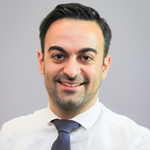
Clinician Scientist, Laboratory Medicine & Pathology, UHN
Dr. Diamandis completed his combined MD/PhD and residency training in neuropathology at the University of Toronto. His graduate work was carried out under the mentorship of Professors Peter Dirks and Mike Tyers in the field of cancer stem cell biology. Notably, he designed high-throughput screening platforms to allow chemical profiling of neural precursors and identified novel regulators of neural and cancer stem cell function; work published in Nature Chemical Biology.
Following completion of his training in 2016, he was hired as a Neuropathologist and Clinician Scientist at the University Health Network and Princess Margaret Cancer Centre in Toronto. His research team focuses on optimizing high-resolution mass spectrometry for high-throughput proteomic analysis of clinical samples to define novel protein-based biomarkers driving disease. Similarly, his group is leading local initiatives that utilize artificial intelligence, and particularly deep learning, to improve the efficiency and objectivity of repetitive and subjective tasks in pathology. This transition intends to augment efficiencies of physician-lead pathology workflows, quality assurance and personalized medicine initiatives. Together with proteomics, his goal is to help transition pathology, from a somewhat qualitative art, into a highly quantitative science.

Surgeon-Scientist, St. Michael’s Hospital
Dr. Teodor Grantcharov completed his surgical training at the University of Copenhagen, and a doctoral degree in Medical Sciences at the University of Aarhus in Denmark. Dr. Grantcharov is a Professor of Surgery at the University of Toronto. He holds the Keenan Chair in Surgery at St. Michael’s Hospital in Toronto and Canada Research Chair in Simulation and Surgical Safety. Dr. Grantcharov’s clinical interest is the area of minimally invasive surgery, with a focus on foregut disease including cancer and bariatric surgery.
Dr. Grantcharov’s area of academic interest is in the field of surgical innovation, surgical education and patient safety. He has become internationally recognized as a leader in this area with his work on curriculum design, assessment of competence and impact of surgical performance on clinical outcomes. Dr. Grantcharov developed the surgical black box concept, which aims to transform the safety culture in medicine and introduce modern safety management systems in the high-risk operating room environment.
Dr. Grantcharov has more than 160 peer-reviewed publications and more than 170 invited presentations in Europe, South- and North America. He sits on the Board of Governors of the American College of Surgeons (ACS) and on numerous committees with Surgical Professional Societies in North America and Europe.
He sits on the Editorial Boards of the British Journal of Surgery and Surgical Endoscopy.

Staff Physician, The Hospital for Sick Children
Lianne is an Assistant Professor and full-time clinical staff physician within the Division of Emergency Medicine at the Hospital for Sick Children in Toronto, Canada. She’s completed training in Paediatric Emergency Medicine and Point-of-care Ultrasound in Toronto, and focuses on clinical teaching and community outreach for paediatricians, emergency physicians and PEM physicians. Recently, she completed a Masters in Health Informatics and is looking deeper into the roles and interactions of different health care technologies on the patient experience. Through this work she chairs the Council of Informatics & Technology in the Division of Emergency Medicine and is working on technology projects across hospitals, at SickKids and within her own division.

Director, DataCore Translational Clinical Informatics, NYU Langone
Dr. Yin Aphinyanaphongs is the Director of Clinical Predictive Analytics in the Center for Health Innovations and Delivery Science at NYU Langone Health. Academically and operationally, his lab and unit focus on designing, deploying, maintaining, and translating predictive models into clinical practice. He is also the Director of the Clinical Informatics Training program and designs curricula for training clinical data scientists to meet the needs of future employers.
2:30-2:45 – Break
2:45-3:30 – Debate: AI in Healthcare: Are We Ready?
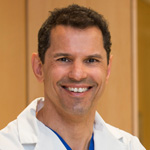
Chief Medical Information Officer, University Health Network
Professor, Department of Medicine and Institute of Health Policy, Management and Evaluation (IHPME), University of Toronto
As Chief Medical Information Officer and staff gastroenterologist, Peter’s priorities include strategic alignment of clinical systems with workflow and productivity in order to improve outcomes related to patient safety, quality improvement, education and research. Peter received his M.D. from the University of Toronto, where he subsequently completed his Internal Medicine, Gastroenterology training, and therapeutic endoscopy fellowship. He studied Leadership Development for Physicians in Academic Health Centers at the Harvard School of Public Health and graduated from the Executive MBA Program at the Joseph L. Rotman School of Management as a Bregman Scholar. In addition to working closely with local academic leadership and researchers, he contributes to provincial and national efforts to advance the use of information and communication technologies. He has achieved international recognition for his innovation and leadership in informatics and telehealth. Recent projects include serving as Clinical Co-Lead for ConnectingGTA, an information hub to provide better access to information resulting in better care for 6.75 million Ontario residents and leading a national synoptic reporting project for gastrointestinal endoscopy to improve procedural quality and patient outcomes. He serves on the eHealth Ontario Board of Directors.

Director, Li Ka Shing Centre for Data-Driven Healthcare Transformation, St. Michael’s Hospital
Dr. Mamdani is the Founding Director of the Li Ka Shing Centre for Healthcare Analytics Research and Training (LKS-CHART) of the Li Ka Shing Knowledge Institute of St. Michael’s Hospital in Toronto. He is also Professor in the Department of Medicine of the Faculty of Medicine, the Leslie Dan Faculty of Pharmacy, and the Institute of Health Policy, Management and Evaluation of the Dalla Lana Faculty of Public Health. He is also adjunct Senior Scientist at the Institute for Clinical Evaluative Sciences (ICES). Dr. Mamdani also is a member of the Human Drug Advisory Panel of the Patented Medicine Prices Review Board (PMPRB) and is a co-Principal Investigator of the Ontario Drug Policy Research Network (ODPRN). Prior to his position at the LKS-CHART, Dr. Mamdani was the Founding Director of the Applied Health Research Centre (AHRC) of the Li Ka Shing Knowledge Institute of St. Michael’s Hospital, which is Toronto’s leading academic research organization focused on the design and implementation of multicentre clinical research initiatives. In 2010, Dr. Mamdani was named among Canada’s Top 40 under 40. Prior to joining the Li Ka Shing Knowledge Institute and St. Michael’s Hospital, Dr. Mamdani was a Director of Outcomes Research at Pfizer Global Pharmaceuticals in New York. Dr. Mamdani’s research interests include pharmacoepidemiology, pharmacoeconomics, and drug policy. He has published approximately 450 research studies in peer-reviewed medical journals, including leading journals such as the New England Journal of Medicine, the Lancet, the Journal of the American Medical Association, the British Medical Journal, and Annals of Internal Medicine. Dr. Mamdani obtained a Doctor of Pharmacy degree (PharmD) from the University of Michigan (Ann Arbor) in 1995 and subsequently completed a fellowship in pharmacoeconomics and outcomes research at the Detroit Medical Center in 1997. During his fellowship, Dr. Mamdani obtained a Master of Arts degree in Economics from Wayne State University in Detroit, Michigan. He then completed a Master of Public Health degree from Harvard University in 1998 with a concentration in quantitative methods, focusing on biostatistics and epidemiological principles.

Senior Researcher, Microsoft Research
Rich Caruana is a Principal Researcher at Microsoft. Before joining Microsoft, Rich was on the faculty in Computer Science at Cornell, at UCLA’s Medical School, and at CMU’s Center for Learning and Discovery. Rich’s Ph.D. is from CMU, where he worked with Tom Mitchell and Herb Simon. His thesis on Multi-Task Learning helped create interest in a new subfield of machine learning called Transfer Learning. Rich received an NSF CAREER Award in 2004 (for Meta Clustering), best paper awards in 2005 (with Alex Niculescu-Mizil), 2007 (with Daria Sorokina), and 2014 (with Todd Kulesza, Saleema Amershi, Danyel Fisher, and Denis Charles), co-chaired KDD in 2007 (with Xindong Wu). His current research focus is on learning for medical decision making, intelligible modeling, deep learning, and computational ecology.
3:30-4:15 – Post-Debate Commentary

Chief Medical Information Officer, University Health Network
Professor, Department of Medicine and Institute of Health Policy, Management and Evaluation (IHPME), University of Toronto
As Chief Medical Information Officer and staff gastroenterologist, Peter’s priorities include strategic alignment of clinical systems with workflow and productivity in order to improve outcomes related to patient safety, quality improvement, education and research. Peter received his M.D. from the University of Toronto, where he subsequently completed his Internal Medicine, Gastroenterology training, and therapeutic endoscopy fellowship. He studied Leadership Development for Physicians in Academic Health Centers at the Harvard School of Public Health and graduated from the Executive MBA Program at the Joseph L. Rotman School of Management as a Bregman Scholar. In addition to working closely with local academic leadership and researchers, he contributes to provincial and national efforts to advance the use of information and communication technologies. He has achieved international recognition for his innovation and leadership in informatics and telehealth. Recent projects include serving as Clinical Co-Lead for ConnectingGTA, an information hub to provide better access to information resulting in better care for 6.75 million Ontario residents and leading a national synoptic reporting project for gastrointestinal endoscopy to improve procedural quality and patient outcomes. He serves on the eHealth Ontario Board of Directors.
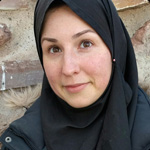
Faculty Member, Vector Institute
Marzyeh Ghassemi is an Assistant Professor at the University of Toronto in Computer Science and Medicine, affiliated with the Vector Institute. Previously, she was a Visiting Researcher with Alphabet’s Verily and a post-doc with Dr. Peter Szolovits at MIT. Professor Ghassemi has a well-established academic track record in personal research contributions across computer science and clinical venues, including KDD, AAAI, MLHC, JAMIA, JMIR, JMLR, Nature Translational Psychiatry, and Critical Care. She is an active member of the scientific community, and co-organized the past three NIPS Workshop on Machine Learning for Health (ML4H).
Professor Ghassemi targets “Healthy ML”, focusing on creating applying machine learning to understand and improve health. Past efforts have focused on improved prediction and stratification of relevant human risks with strong clinical collaborations, encompassing unsupervised learning, supervised learning, and structured prediction. Her work has been applied to estimating the physiological state of patients during critical illnesses, modeling the need for a clinical intervention, and diagnosing phonotraumatic voice disorders from wearable sensor data. Prior to MIT, she received an MSc. degree in biomedical engineering from Oxford University as a Marshall Scholar, and B.S. degrees in computer science and electrical engineering as a Goldwater Scholar at New Mexico State University.
Professor Ghassemi’s work has been featured online, in popular press such as MIT News, NVIDIA, Huffington Post. She was also recently named one of MIT Tech Review’s 35 Innovators Under 35.

Director, Li Ka Shing Centre for Data-Driven Healthcare Transformation, St. Michael’s Hospital
Dr. Mamdani is the Founding Director of the Li Ka Shing Centre for Healthcare Analytics Research and Training (LKS-CHART) of the Li Ka Shing Knowledge Institute of St. Michael’s Hospital in Toronto. He is also Professor in the Department of Medicine of the Faculty of Medicine, the Leslie Dan Faculty of Pharmacy, and the Institute of Health Policy, Management and Evaluation of the Dalla Lana Faculty of Public Health. He is also adjunct Senior Scientist at the Institute for Clinical Evaluative Sciences (ICES). Dr. Mamdani also is a member of the Human Drug Advisory Panel of the Patented Medicine Prices Review Board (PMPRB) and is a co-Principal Investigator of the Ontario Drug Policy Research Network (ODPRN). Prior to his position at the LKS-CHART, Dr. Mamdani was the Founding Director of the Applied Health Research Centre (AHRC) of the Li Ka Shing Knowledge Institute of St. Michael’s Hospital, which is Toronto’s leading academic research organization focused on the design and implementation of multicentre clinical research initiatives. In 2010, Dr. Mamdani was named among Canada’s Top 40 under 40.
Prior to joining the Li Ka Shing Knowledge Institute and St. Michael’s Hospital, Dr. Mamdani was a Director of Outcomes Research at Pfizer Global Pharmaceuticals in New York. Dr. Mamdani’s research interests include pharmacoepidemiology, pharmacoeconomics, and drug policy. He has published approximately 450 research studies in peer-reviewed medical journals, including leading journals such as the New England Journal of Medicine, the Lancet, the Journal of the American Medical Association, the British Medical Journal, and Annals of Internal Medicine. Dr. Mamdani obtained a Doctor of Pharmacy degree (PharmD) from the University of Michigan (Ann Arbor) in 1995 and subsequently completed a fellowship in pharmacoeconomics and outcomes research at the Detroit Medical Center in 1997. During his fellowship, Dr. Mamdani obtained a Master of Arts degree in Economics from Wayne State University in Detroit, Michigan. He then completed a Master of Public Health degree from Harvard University in 1998 with a concentration in quantitative methods, focusing on biostatistics and epidemiological principles.

Senior Researcher, Microsoft Research
Rich Caruana is a Principal Researcher at Microsoft. Before joining Microsoft, Rich was on the faculty in Computer Science at Cornell, at UCLA’s Medical School, and at CMU’s Center for Learning and Discovery. Rich’s Ph.D. is from CMU, where he worked with Tom Mitchell and Herb Simon. His thesis on Multi-Task Learning helped create interest in a new subfield of machine learning called Transfer Learning. Rich received an NSF CAREER Award in 2004 (for Meta Clustering), best paper awards in 2005 (with Alex Niculescu-Mizil), 2007 (with Daria Sorokina), and 2014 (with Todd Kulesza, Saleema Amershi, Danyel Fisher, and Denis Charles), co-chaired KDD in 2007 (with Xindong Wu). His current research focus is on learning for medical decision making, intelligible modeling, deep learning, and computational ecology.
4:15-4:30 – Closing Remarks

Executive Vice President, Technology & Innovation, UHN; Director, Techna Institute, UHN
Dr. David Jaffray graduated from the University of Alberta with a B.Sc. in Physics (Hons.) in 1988 and completed his Ph.D. in the Department of Medical Biophysics at the University of Western Ontario in 1994. Following graduation, he took a position as Staff Physicist in the Department of Radiation Oncology at William Beaumont Hospital in Michigan where he instigated a direction of research that garnered funding from the NIH and from congressionally-directed funding programs. Dr. Jaffray became a Board Certified Medical Physicist (ABMP – Radiation Oncology) in 1999.
In 2002, Dr. Jaffray joined the Princess Margaret Hospital in Toronto as Head of Radiation Physics and a Senior Scientist within the Ontario Cancer Institute. David holds the Fidani Chair in Radiation Physics, is the Director of the Techna Institute for Health Technology Development at the University Health Network and recently became the Executive Vice President of Technology and Innovation at the University Health Network. He is a Professor in the Departments of Radiation Oncology, Medical Biophysics, and Institute for Biomaterials and Biomedical Engineering at the University of Toronto. His primary area of research has been in the development and application of image-guided therapy. He has over 5 patents issued and several licensed, including, kilovoltage cone-beam computed tomography for image-guided radiation therapy. Dr. Jaffray has >200 peer-reviewed publications in the field, >100 invited lectures, and holds numerous peer-review and industry sponsored research grants. He sits on numerous scientific and research boards and has contributed to the NIH and CIHR grant review process for several years. He is an active member of the AAPM and teaching role in workshops and annual meeting of the American Society of Therapeutic Radiation Oncology (ASTRO). He has an active interest in commercialization and led the development of a variety of commercial products including software and hardware for QA and the development of small animal irradiator systems for basic research. He has successfully supervised over 20 graduate students and fellows.
Dr. Jaffray has won each of the major prizes in the field of the medical physics, including, the Sylvia Sorkin-Greenfield Award, The Farrington Daniels Award, and the Sylvia Fedoruk Award. In 2004, Dr. Jaffray was identified as one of Canada’s Top 40 Under 40 and was recognized by The University of Western Ontario with their Young Alumni Award in 2004. His current research interests focus on the development of imaging technologies and methods with a focus on image-guided interventions, including radiation therapy, drug delivery, and surgery.















